People are outing themselves as 'terrorist sympathisers' to make a political point
- Published
As Parliament debates the merits of British airstrikes against so-called Islamic State in Syria, Twitter users seized on a comment made by Prime Minister David Cameron.
"Terrorist sympathiser" was the top UK trend on Wednesday morning, driven by opponents of the bombing, many of whom were using the tag ironically to describe themselves and to criticise the prime minister. Addressing a meeting of Conservative Party MPs on Tuesday night, Cameron warned that voting against strikes risked undermining the UK's solidarity with allies already bombing Syria. He called the opponents of military action, including Labour Party leader Jeremy Corbyn, "terrorist sympathisers".
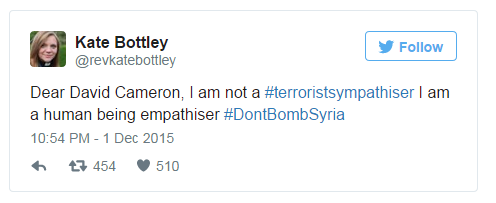
After news of the comment broke, more than 20,000 messages had used the hashtag before 1000 GMT.
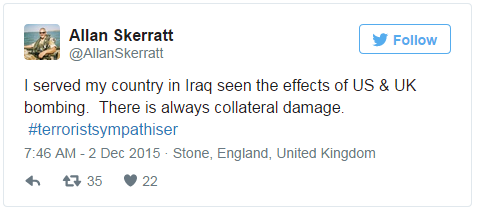
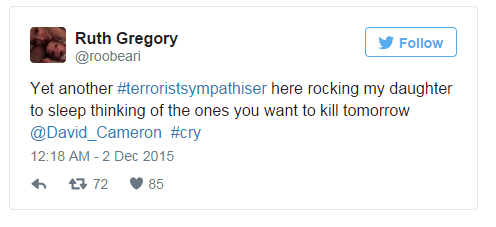
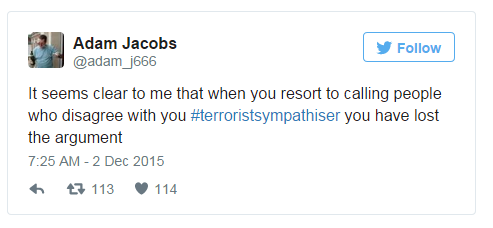
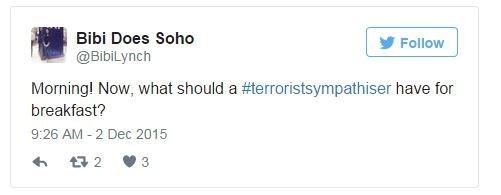
Many of the most retweeted messages attacked the UK's alliances with Saudi Arabia and Israel.
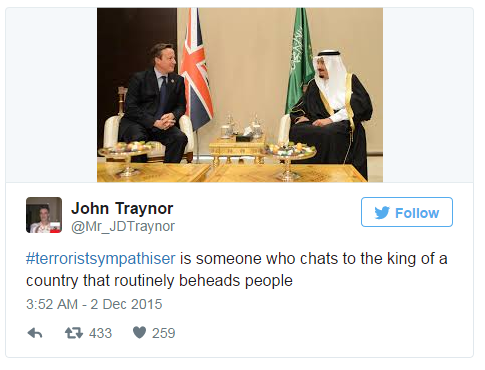
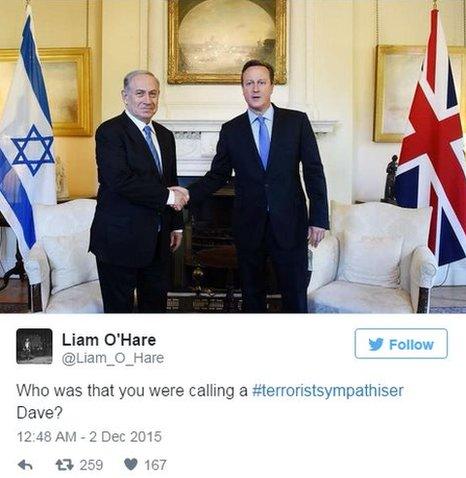
On Wednesday morning, the hashtag #TerroristSympathiser , externalwas almost five times as popular as the more neutral #SyriaVote, external. Another hashtag being used by anti-war protesters is #DontBombSyria, external, which dates back to at least 2013 when David Cameron last tried to get a vote passed on Syria military action. Its popularity peaked over the weekend during a mass demonstration against the proposed air strikes. Supporters of Labour leader Jeremy Corbyn have been pushing the hashtag hoping for it to hit the top trends list again on Wednesday as a result of an organised campaign to flood Facebook and Twitter with similar messages at the same moment:
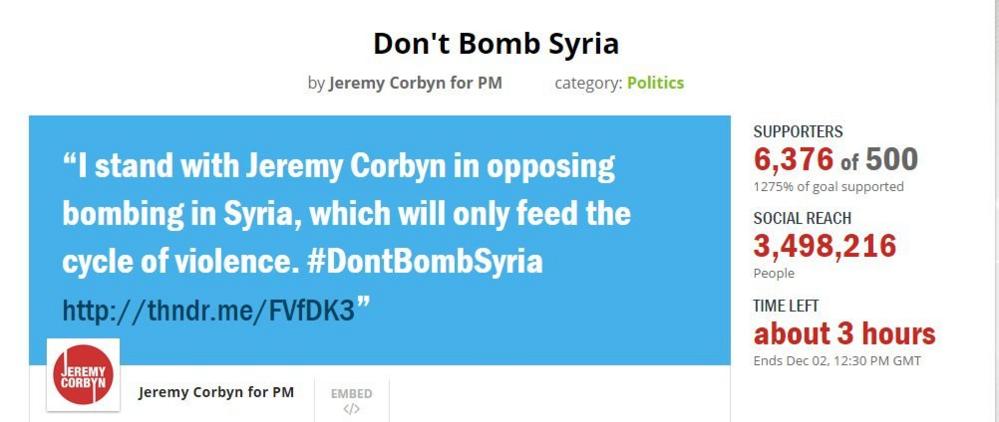
Blog by Diana Rusk and Mike Wendling, external
Next story: Why a controversial temple site in India is trending again
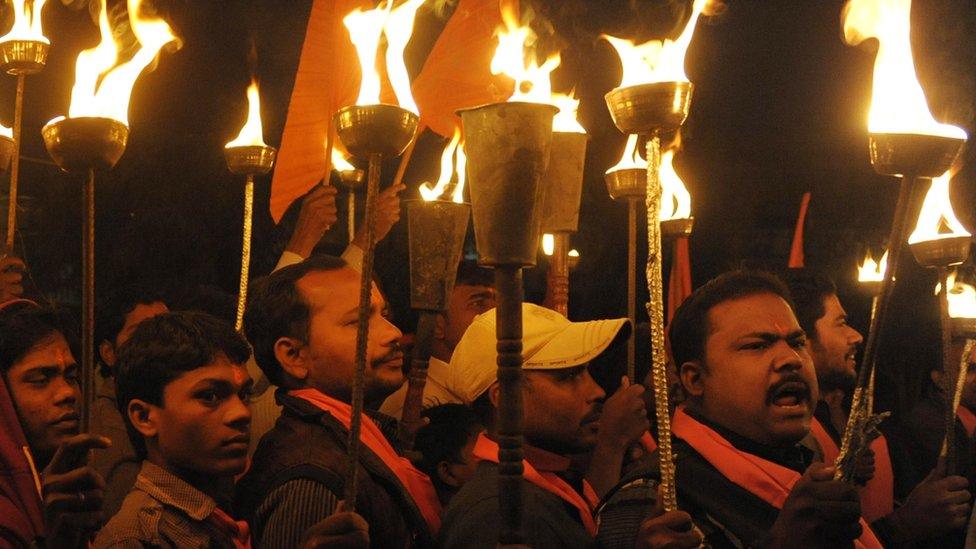
The northern Indian town of Ayodhya has been a flashpoint between Hindus and Muslims in India for years. READ MORE
You can follow BBC Trending on Twitter @BBCtrending, external, and find us on Facebook, external. All our stories are at bbc.com/trending.